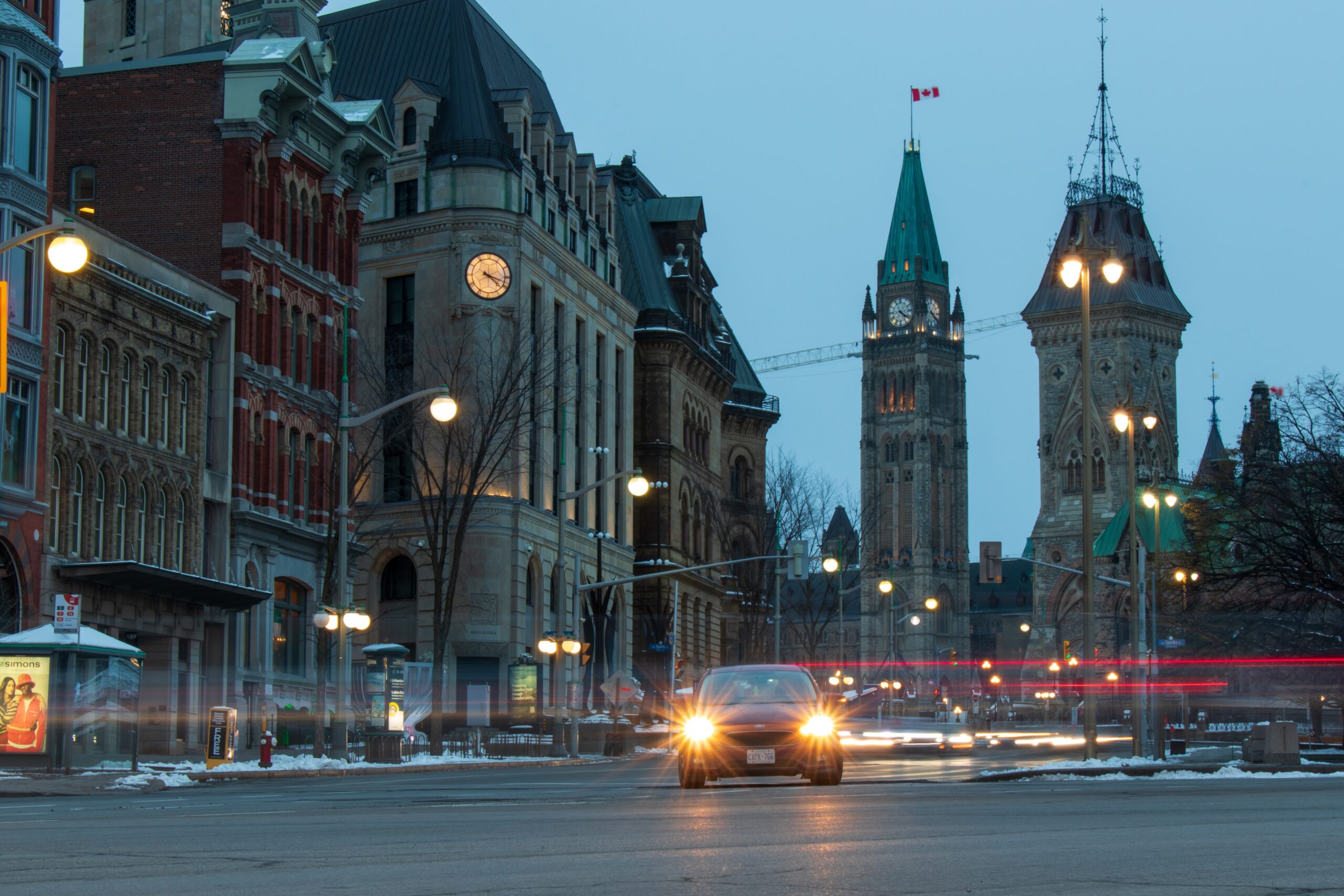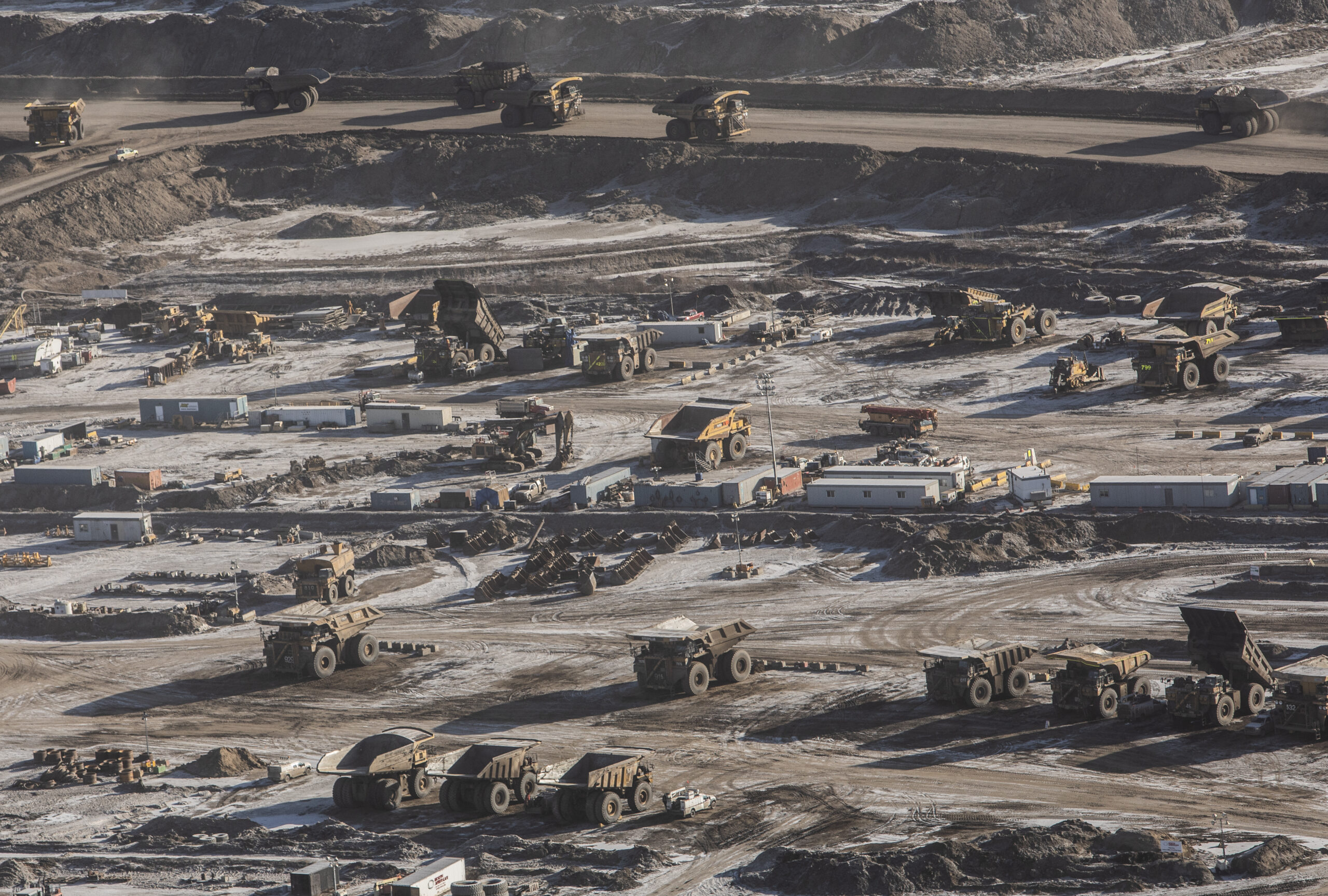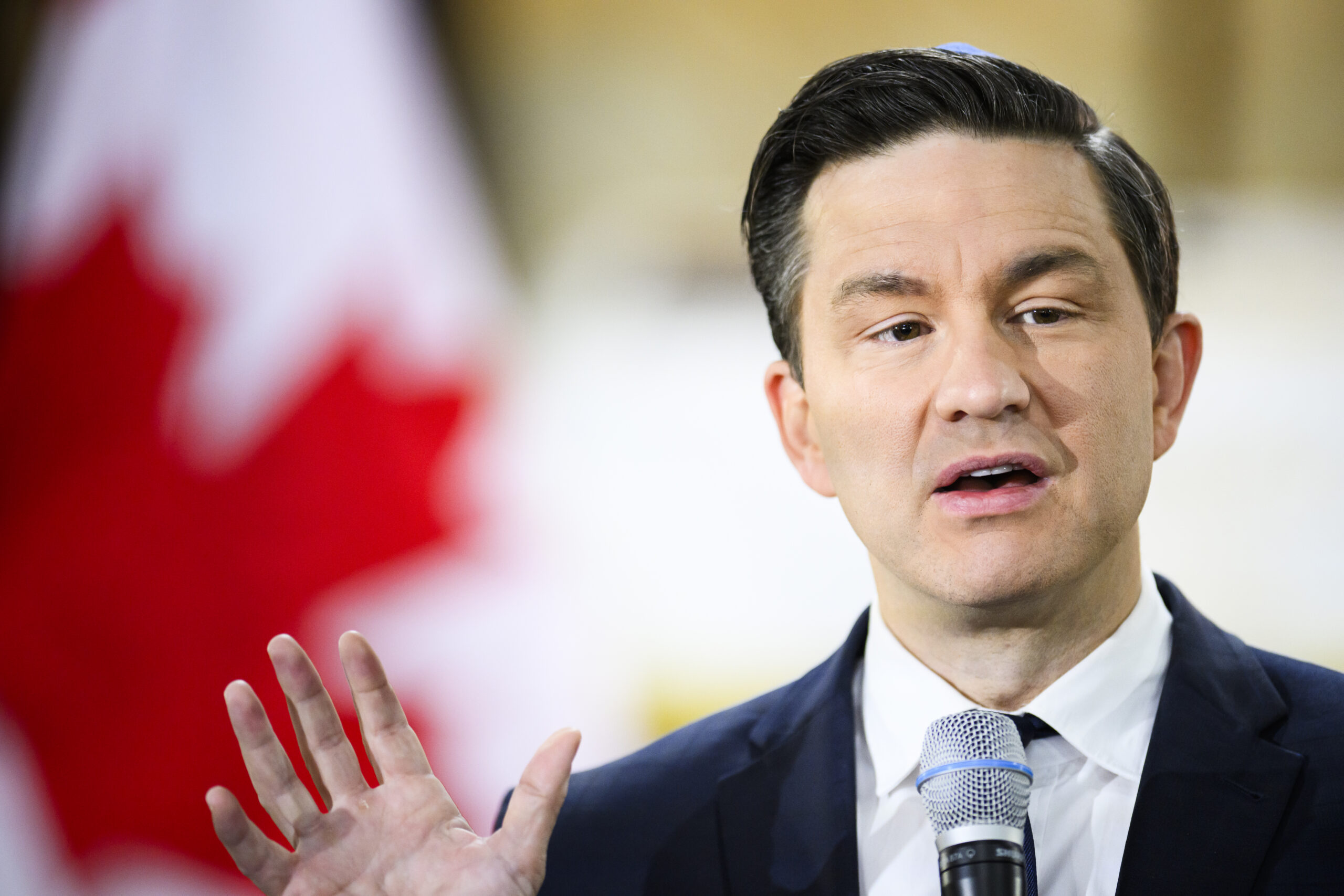
Celebrating 7 years of The Narwhal — and gearing up for the next 7
Between a fresh take on engagement and our new life on video, our team is...
Get the inside scoop on The Narwhal’s environment and climate reporting by signing up for our free newsletter.
A trio of Liberal, New Democrat and Bloc Québécois MPs put partisan politics aside in order to sharpen the teeth of Canada’s anti-greenwashing law, and the oilpatch is feeling the bite.
Liberal MP Patrick Weiler, NDP MP Don Davies and Bloc MP Gabriel Ste-Marie worked together to add a key clause to Canada’s Competition Act expanding the powers of a federal watchdog to crack down on companies making environmental claims without evidence — a practice known as greenwashing.
The MPs credit each other for helping shepherd the clause through committee last spring.
“Basically, violent agreement broke out between the NDP, Liberals and Bloc,” Davies told The Narwhal.
The legislation was adopted as part of an omnibus bill passed in Parliament last June with a range of economic and tax policy changes, among them the new anti-greenwashing rules.
As a result of the three MPs’ efforts, the Competition Act now targets claims about the environmental benefits of any “business or business activity” that are not substantiated in line with an “internationally recognized methodology,” and the onus is on the company to prove what it’s saying.
The clause, supported by Conservative MPs in Parliament, empowers the federal Competition Bureau, which regulates and enforces fair competition in the marketplace, to evaluate environmental claims about a company’s goals and processes, not just specific products. Those were targeted in another new clause added at the same time, and both join other constraints already in the law against deceptive marketing practices.
Several fossil fuel companies and their lobby groups have taken complaints about the new rules to the Competition Bureau. For example Suncor, one of Canada’s largest oilsands companies, called the clause championed by the three MPs “vague, overreaching and globally unprecedented” in a comment that was posted on its website.
Complicating matters is that Environment and Climate Change Canada has also told the bureau that uncertainty surrounding the anti-greenwashing rules has led to challenges fulfilling its own mandate. The bureau told The Narwhal it’s reviewing all the feedback it received and is aiming to propose guidelines on the matter before the end of the year.
Despite the pushback and any changes that might come, Weiler said he thinks strengthening the bureau’s ability to crack down on misleading environmental claims is a worthy endeavour.
“We need to have truth in the type of advertising that we have, so we could have an honest debate, so that we’re not being taken for a ride by fossil fuel companies,” he said.

The federal government first introduced the omnibus bill C-59 at the heart of the controversy in late 2023.
At the time, the government said its proposed changes to the Competition Act were meant to curtail environmental claims about products not based on evidence and would become a powerful tool to tackle greenwashing.
The clause could smooth the way for more cases like one from 2022, when the Competition Bureau announced a $3-million settlement with coffee pod maker Keurig Canada centering around the recyclability of one of its products, the K-Cup.
But legal analysts pointed out the government’s proposed amendment had a blind spot: it wouldn’t cover any company statements that aren’t specific to products, like a company’s claims about net-zero emissions goals.
Environmental groups argued this approach was too weak. Up to 80 per cent of green advertisements focus on activities, brands or corporate entities instead of products, according to a joint statement by the Canadian Association of Physicians for the Environment, the Quebec Environmental Law Centre, Ecojustice and Équiterre.
The following are selections from the formal comments of oil and gas companies and fossil fuel lobby groups in Canada submitted to the Competition Bureau, during its consultations over the anti-greenwashing provisions in the Competition Act.
“The new language regarding substantiation of sustainability claims in accordance with “internationally recognized methodologies”… is vague, overreaching and globally unprecedented.”
“Requirements for “proper and adequate substantiation” based on undefined and subjective “internationally recognized methodologies” introduces significant uncertainty and imposes unreasonable restrictions on Canadian businesses.”
“When combined with the substantial penalties and the unreasonable and impractical imposition of the international standard for enforcement purposes, these legal uncertainties identified above have the potential to both stifle investment in research and development and affect capital investment in Canada, particularly in industries looking to improve environmental performance through investment in environmental and climate technologies.”
“The new provision goes far beyond what we would consider to be a reasonable approach towards achieving this objective, as it places overly limiting constraints on industry’s ability to publicly convey its legitimate progress and aspirations towards improving environmental performance, subject to overly punitive penalties.”
“CAPP is opposed to the Competition Act’s amendments related to environmental representations with respect to the benefits of a business or business activity included in Bill C-59, and believes these amendments should be fully repealed.”
“The language of the new section…creates significant legal uncertainty for businesses making virtually any type of communication that relates to the environment or climate change, regardless of the purpose of the communication and the intended audience.”
Recent greenwashing complaints to the Competition Bureau involving the retail, oil and gas and banking sectors have all targeted corporate claims of environmentalism or climate-friendly activity, rather than products.
During meetings of the House of Commons finance committee over the winter and spring of 2024, green groups and other expert witnesses pushed for the rules to be broadened immediately.
One of those witnesses was Julien Beaulieu, a law lecturer at the Université de Sherbrooke who studies greenwashing for the Quebec Environmental Law Centre, who told the committee the rules should cover “all environmental representations by businesses, regardless of their subject.”
He pointed out other countries have rules surrounding environmental claims by companies. The European Union, as well as the United Kingdom’s competition regulator and financial regulator have all rolled out new rules on greenwashing recently.
“Companies are not prevented from saying anything, or at least not more than before, but they just need to have evidence. They need to have proof,” he told The Narwhal about his proposed change.
Canada’s commissioner of competition, Matthew Boswell, recommended studying whether the anti-greenwashing rules could be expanded to all environmental claims.
The three MPs individually came to the same conclusion: they needed to add another clause to the Competition Act that would broaden its scope.
Davies said all three parties submitted amendments. When the Bloc’s version came up first, due to procedural rules, Ste-Marie said his team was inspired by an amendment Weiler had written up.
In comments to the committee, he credited Weiler for “very thorough work on this” and also credited Davies for having “worked a great deal” on the issue.
“Very often, we discuss with colleagues to see how we can get amendments adopted, we look for allies, and we work together to improve laws,” Ste-Marie told The Narwhal in French.
In an interview, Weiler said he wrote his amendment to combat companies that boast about plans to achieve net-zero without evidence of putting in the hard work to achieve that.
He also said he hoped the new provision would make companies think twice before suggesting liquefied natural gas, or LNG, will reduce global emissions, a controversial industry position that Canada admitted in 2023 lacks evidence.
Weiler said oilsands companies in particular have been “distorting the debate” by talking about their emissions reduction plans publicly without having invested considerable amounts of their own funding into making them a reality.
And he called it “very telling” that the Pathways Alliance oilsands lobby group and some firms pulled information offline after the expanded greenwashing rules came into effect, even though Pathways said at the time that its move was “not related to the truth and accuracy of our environmental communications.”
“If you’re taking everything down, or even putting a disclaimer, what does that say about the kind of information that you were putting up, up to that point?” Weiler said.
“To me, it just shows that what was being put on there before, didn’t really have anything to back it up.”

Oil and gas companies say they have been pulling information offline because of the legal uncertainty they say the law has created.
Energy NL, an oil and gas industry group in Newfoundland and Labrador, told the Competition Bureau that the anti-greenwashing provisions were “largely met with confusion by organizations in the energy sector.”
It said many companies began to scrub their websites and social media simply to “ensure that they were not unknowingly breaking the law.”
Cenovus, a large oilsands company, similarly told the bureau that the “uncertainty created by the new provision has caused Cenovus to remove from its website or withhold the publication of various environmental metrics … until such time as we have reasonable clarity on how the new provision will be interpreted and applied.”
The clause’s requirements introduce “significant uncertainty” and “imposes unreasonable restrictions on Canadian businesses,” said Imperial Oil, a large oil and gas company majority-owned by ExxonMobil.
Oilsands giant Canadian Natural Resources Limited said the clause was so “broad and vague” that it creates “significant legal uncertainty for businesses making virtually any type of communication that touches on the environment or climate change regardless of the purpose of the communication and the intended audience.”
Another complaint from the industry is that the changes were brought in too quickly.
The MPs’ clause “subordinates existing domestic regulatory regimes, represents an infringement on freedom of expression, and was adopted in a haphazard manner without due consideration or consultation,” Suncor told the Competition Bureau.
It was “introduced and passed without meaningful consultation or study,” said Calgary-based fossil fuel pipeline company Enbridge.
Environment and Climate Change Canada has said the law is so wide-reaching it may make companies too shy to announce “well-intentioned” environmental commitments.
The head of the department’s Cross-Sectoral Energy Division wrote the Competition Bureau in late September to say “uncertainty around the announced amendments has led to some challenges” for the department to encourage companies to voluntarily adopt commitments under its “Net-Zero Challenge.”
The program is meant to help businesses develop plans to achieve net-zero by 2050. It counts oil and gas company Shell Canada among its members.
“In this context, it may be counterproductive to potentially hamper the ambition of companies and create a situation where they are reluctant to announce well-intentioned aspirational commitments and take real action for fear of legal risk,” Environment Canada wrote.
The Narwhal asked the department if it was still dealing with these challenges and whether it had raised its concerns directly with MPs prior to the bill becoming law. A spokesperson acknowledged receipt but did not respond before publication.
The Narwhal asked Guilbeault in October if he believed Canada’s oil and gas industry is still free to express itself openly under the new greenwashing rules.
Guilbeault said he felt the rules were “fairly simple” and simply require companies to back up their environmental statements with facts.
“Moving forward, we want to make sure that any company making claims about the environmental virtue of what they’re doing or their products have the ability to back it up.”

No Conservative MPs were involved in drafting the tougher greenwashing clauses. Conservative Party Leader Pierre Poilievre opposed the omnibus bill early in the legislative process because it didn’t eliminate the federal price on carbon pollution.
Conservative MPs, however, later voted in favour of a package of amendments in the House of Commons, which included the anti-greenwashing provisions, even as they opposed other changes proposed in the bill.
The Narwhal asked Poilievre’s office if it could identify the party position on greenwashing and the government’s anti-greenwashing provisions, and why Conservative MPs voted in favour of the amendments package even as the party opposed the bill. Poilievre’s office acknowledged receipt but did not provide a response before publication.
Meanwhile, the Conservatives have rarely used the term “greenwashing” in Parliament this year.
In an April committee meeting, Conservative MP Ryan Williams did ask University of Ottawa vice-dean of research Jennifer Quaid whether the anti-greenwashing amendments were “a pressing concern right now in Canada with everything else happening?” (Quaid said yes, she thought it was an important issue).
At another point, Conservative MP Adam Chambers asked Boswell, the commissioner of competition, about whether his office was looking at green claims by financial institutions or the financial services sector. (Boswell said he was looking into at least one.)
And then there is Conservative MP Gérard Deltell, the party’s critic for environment and climate change, who had a novel take on the definition of greenwashing when speaking on the House environment committee in May.
“Personally, I think we engage in greenwashing when we take a plane, when we travel a lot and then buy credits. It leaves us with a clear conscience, and we then speechify about it, but the reality is that we’re polluting,” he said.
Get the inside scoop on The Narwhal’s environment and climate reporting by signing up for our free newsletter. On a warm September evening nearly 15...
Continue reading
Between a fresh take on engagement and our new life on video, our team is...

The public has a few days left to comment on Doug Ford’s omnibus development bill....

115 billion litres, 70 years to fix, $5.5 billion in lawsuits
